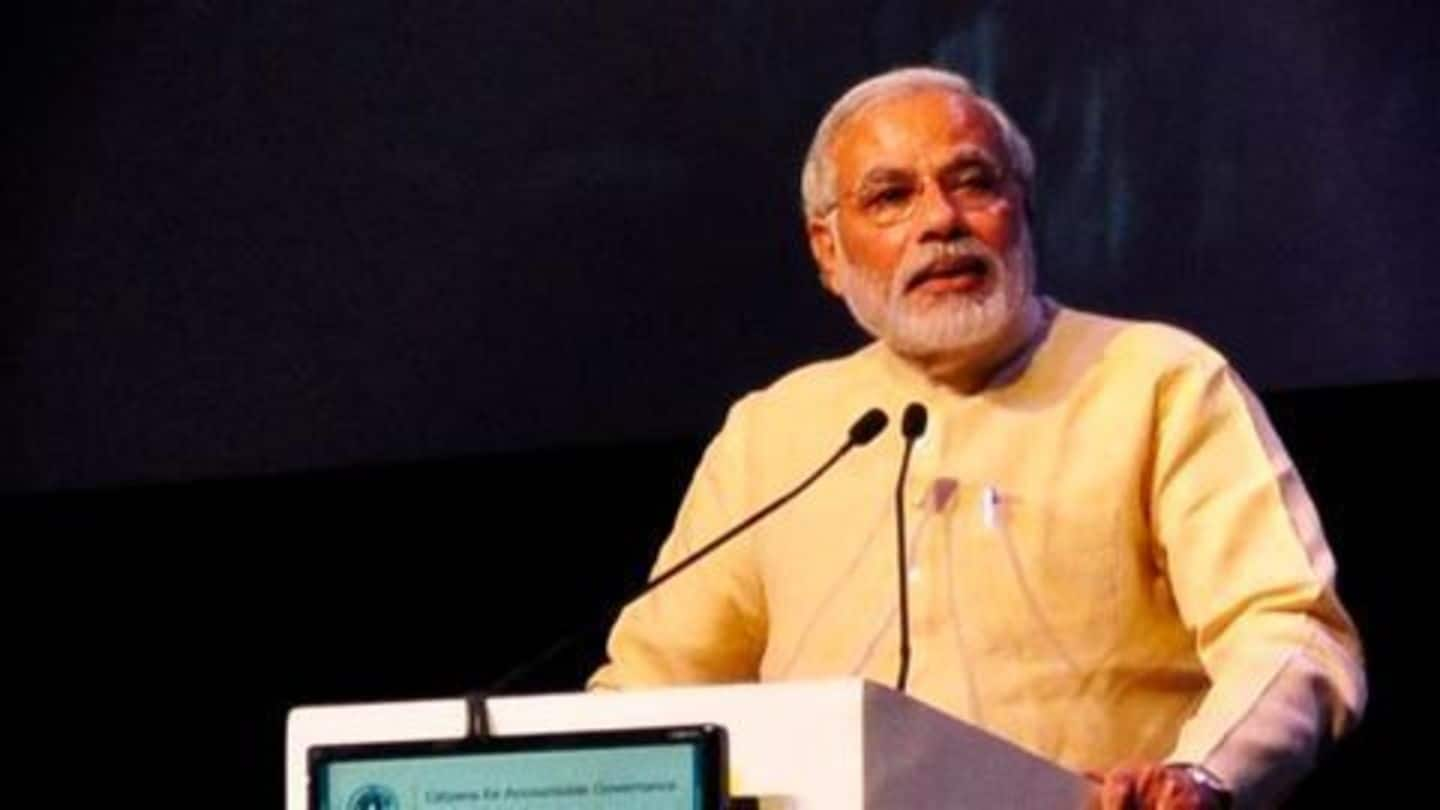
Modi-led government focused on repairing and reforming the economy
What's the story
Credit Rating and Information Services of India Limited (CRISIL) released a report on two years of PM Narendra Modi's government. The report stated that the policy focus of the Indian government wasn't based on populism and promoting recurrent growth through monetary and fiscal stimuli. CRISIL said it was rather based on repairing the policy and introducing structural reforms in the policy wherever possible.
Introduction
What is CRISIL?
Credit Rating and Information Services of India Limited was founded on 29 January 1987; Narayanan Vaghul was its first Chairman and Pradip Shah its first Managing Director. CRISIL, known for its credibility and analytical rigor, is one of India's largest research, risk, rating, and policy advisory companies. It is headquartered in Mumbai; it has 20 offices operating across Asia-Pacific, Europe, North and South America.
CRISIL Report
CRISIL chose trend over cycle to evaluate growth
CRISIL chose trend over cycle to analyze and evaluate the growth quality achieved by Modi's government. The report focuses on the improvement of the economic growth quality, and also on the possibly disruptive impact of digitalization. Growth in India isn't supported by credit creation yet average domestic credit growth for the past two years is 9.8%, close to 10.2% nominal GDP growth.
Quote
CRISIL's statement on two years of Modi government
"The Modi government wrapped up its second year in office, delivering a better macroeconomic position, higher ease of doing a business ranking, improved institutional capabilities, and a less fragile financial system compared with 2014. It is heartening to see some building blocks falling in place."
Policy
Modi government's policy has been quite prudent: CRISIL
CRISIL stated the fiscal policy of Modi's government was encouraged by low oil prices. It added that the administration has been quite economical and aimed at improving the quality of investing through targeting better. The government, keeping a watch on the overall deficit, has also scaled up infrastructure investment. The government's monetary policy has focused on steering in a low yet stable inflation regime.
GDP Growth
GDP expected to rise during 2016-17
CRISIL indicated that the Gross Domestic Product of India is likely to increase and reach 7.9% during 2016-17 in comparison to 7.6% during 2015-16. The agency said that the GDP would increase provided that the monsoon in 2016-17 is normal and also the global situation doesn't deteriorate. During 2015-16, three consecutive climate shocks affected GDP growth: two scarce monsoons and unseasonal rains in Mar'15.
Quote
Structural reforms take time to impact the economy
CRISIL report stated: "Structural reforms take time to impact the economy. So how much the trend improves depends a lot on how the repairs and reforms are carried out, particularly in the second half of the government's term when the political cycle typically starts."
Positive Steps
Government has taken structurally positive steps
The report stated that the government has taken "structurally positive steps" over the past two years to improve banking and electricity sectors. The government has passed two key Bills- The Insolvency and Bankruptcy Code Bill, 2016; and the Aadhar Bill. Bankruptcy Code Bill aims for quick resolution of bankruptcies while the Aadhar Bill distributes rural wages, subsidies, and pensions through an electronic platform.
Quote
The digitalization upside
CRISIL report said: "The government has also been quick to board the technology bandwagon with its "Digital India" programme, which aims to speed up financial inclusion and deliver government services electronically by increasing internet connectivity and improving online infrastructure."